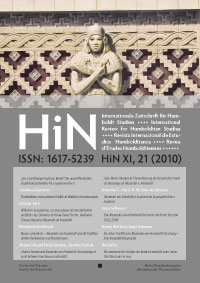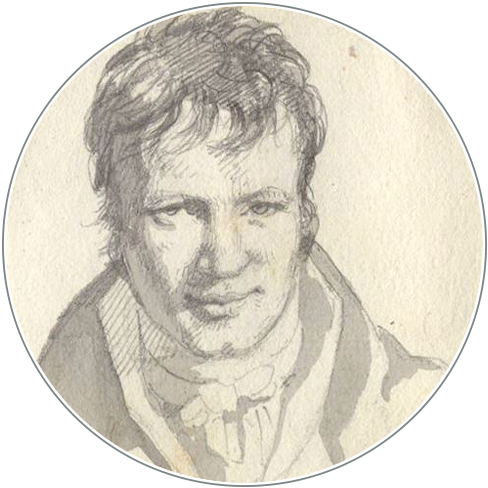Nomos und physis. Alexander von Humboldt und die Tradition antiker Denkweisen und Vorstellungen
DOI:
https://doi.org/10.18443/144Parole chiave:
Aristoteles, Philolaos aus Kroton, Pythagoreer, Wissenschaftsbeziehungen, Wissenschaftsgeschichte, Wissenschaftspraxis, WissenschaftstheorieAbstract
Abstract
Alexander von Humboldt’s world view, philosophy of science, and scientific practice were dominated by the notions of measure and harmony. This matter of fact does not leave any doubt about Humboldt’s Pythagoreanism. Already the choice of the title of his Kosmos was led by Pythagorean thought. In 1846 he explicitly wrote to Jacobi that the whole first book is based on the idea that the first Hellenic seeds to all further progresses of mathematical natural knowledge are owed to the Pythagoreans and their emphasis on measure, number, and weight. The paper consists of four parts. The first part deals with Humboldt’s acquaintance with the fragments of the Pythagorean Philolaus. The second part compares the Aristotelean tradition with Philolaus’s informations on Pythagoreanism. The third part relying on the two foregoing parts explains Humboldt’s philosophy of science as a tranformation of Pythagoreanism. The last part discusses three examples taken from Humboldt’s scientific practice in order to illustrate the results deduced up to then.
Downloads
Pubblicato
Come citare
Fascicolo
Sezione
Licenza
Copyright (c) 2010 Eberhard Knobloch

Questo lavoro è fornito con la licenza Creative Commons Attribuzione - Non commerciale 4.0 Internazionale.
Die Rechte der eingesandten Artikel bleiben bei den Autoren und werden unter einer Creative Commons-Lizenz (CC BY-NC 4.0) veröffentlicht. Alle bei HiN publizierenden Autorinnen und Autoren akzeptieren dieses Lizenzmodell.
Die Autorinnen und Autoren tragen die Verantwortung für das Einwerben der Bildrechte.
Die Rechte am Layout und Design der Zeitschrift sind nicht übertragbar und können nicht ohne vorherige Zustimmung von HiN in anderen Publikationen weiterverwendet werden.







